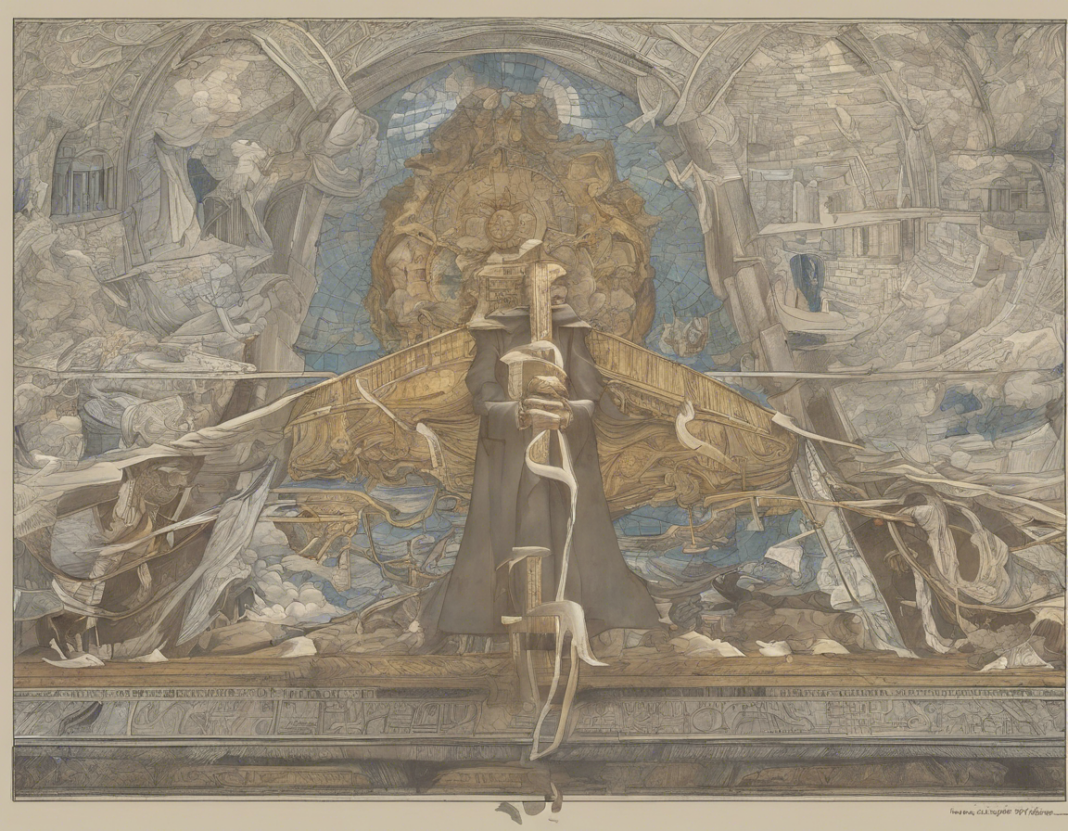Introduction
In the realm of philosophy and jurisprudence, the concept of natural law has long been a subject of intrigue and debate. Rooted in the idea that there exists a higher, universal law that governs human behavior, natural law has profound implications for ethics, politics, and the legal system. This article delves into the intricacies of natural law, its history, key proponents, criticisms, and contemporary relevance.
Understanding Natural Law
What is Natural Law?
Natural law is a theory that posits the existence of a higher law that is intrinsic to human nature and transcends the laws created by human societies. This higher law is believed to be discoverable through reason and is considered to be immutable and universal.
Historical Development of Natural Law
The roots of natural law can be traced back to ancient Greek philosophy, particularly in the works of thinkers such as Socrates and Plato. However, it was the Stoic philosophers, notably Cicero and Seneca, who further developed the concept of natural law as a rational and moral order that underlies the universe.
Key Proponents of Natural Law
One of the most influential proponents of natural law in the Christian tradition was St. Thomas Aquinas, who integrated Aristotelian philosophy with Christian theology to develop a comprehensive theory of natural law. Thomas Hobbes and John Locke also made significant contributions to the theory of natural law, albeit with different emphases on social contract and individual rights, respectively.
Critiques of Natural Law
Despite its enduring appeal, natural law theory has not been without its critics. Legal positivists, such as John Austin and H.L.A. Hart, have argued that the existence of a higher law separate from man-made laws is a fiction. Additionally, postmodern thinkers have critiqued natural law for its supposed privileging of certain moral norms over others and its potential for cultural imperialism.
Relevance of Natural Law Today
While the heyday of natural law theory may have passed, its influence can still be felt in contemporary discussions on human rights, justice, and morality. The idea of universal human rights, for instance, is often grounded in the notion of natural law. Furthermore, debates over issues such as same-sex marriage, euthanasia, and environmental ethics often invoke appeals to natural law principles.
FAQs
1. What is the relationship between natural law and positive law?
– Natural law is considered to be a higher law that serves as a moral standard by which positive (man-made) laws are judged. Positive laws that align with natural law are considered just, while those that conflict with it are seen as unjust.
2. Can natural law change over time?
– Proponents of natural law argue that the core principles of natural law are immutable and universal. However, the application of natural law principles to specific contexts may evolve as societal values and norms change.
3. How does natural law differ from legal positivism?
– Legal positivism holds that the validity of laws is based on social norms or political authority, rather than any inherent moral principles. Natural law, on the other hand, posits the existence of a higher, universal law that transcends human laws.
4. Is natural law a religious concept?
– While natural law has been influential in religious thought, particularly in Christian theology, it is not inherently tied to any specific religious tradition. Natural law can be grounded in reason and the observation of human nature.
5. How does natural law influence contemporary legal systems?
– While many modern legal systems are based on positivist principles, ideas of natural law continue to inform discussions on justice, human rights, and the limits of governmental authority. Judges and legal scholars may sometimes appeal to natural law principles in their reasoning.
Conclusion
In conclusion, natural law remains a potent and provocative concept that continues to shape our understanding of ethics, law, and society. While its theoretical underpinnings may be subject to debate, the enduring appeal of natural law lies in its aspiration to uphold universal moral principles that transcend cultural and temporal boundaries. As we grapple with complex ethical dilemmas and navigate the ever-changing landscape of legal norms, the guiding light of natural law serves as a beacon of moral clarity and philosophical inquiry.
